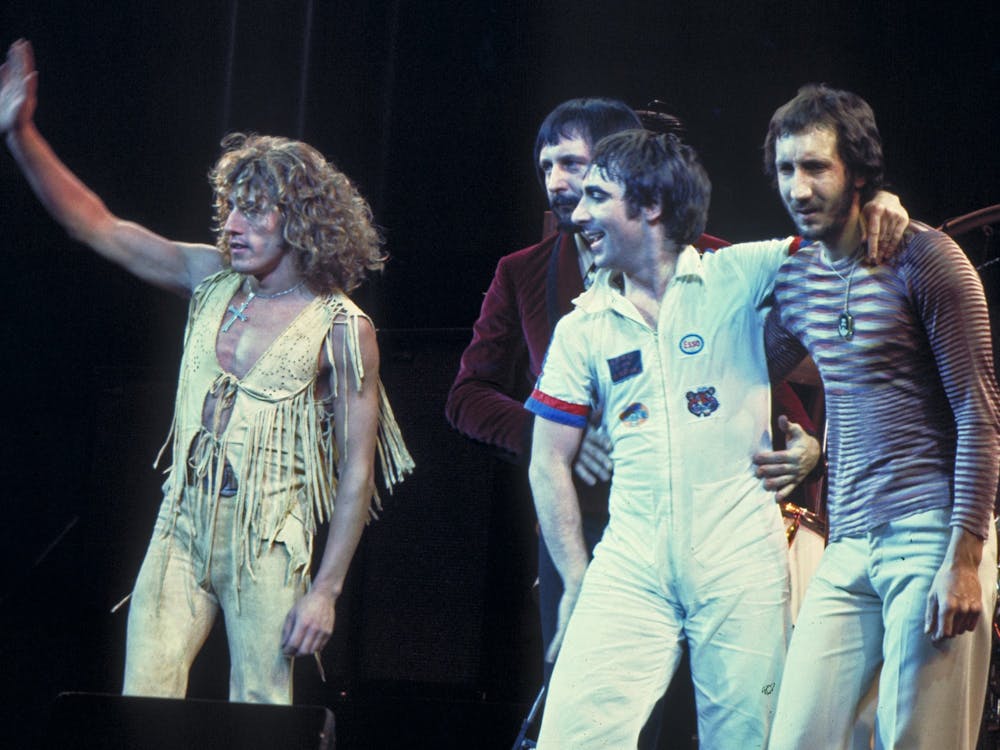If the Internet hasn’t defined your idea of “Boomers” yet, allow artists of the generation to do it for you. This generation, often criticized by adolescents for outdated political beliefs and language, were the leaders of the progressive political movements 50 years ago, from the fight for Civil Rights to anti-war protests in the streets.
Let us not forget, though, how they were also leaders in music. Artists such as Jimi Hendrix, Bob Dylan and John Lennon infused their music with political messages and created an authentic classic rock style. The Who’s “My Generation” illustrates how this genre defined a generation.
The Who released their new album “WHO” Dec. 6. The legendary English-based rock band was formed in 1964 and has had several chart-topping hits in the United Kingdom and the United States throughout their career. The album is their first release in 13 years and marks 50 years since the release of their 1969 album “Tommy.”
In addition to being 50 years since “Tommy,” “WHO” marks 50 years since what some may consider the height of classic rock: 1969 was also the year of The Beatles’ “Abbey Road,” The Rolling Stones’ “Let it Bleed,” Creedence Clearwater Revival’s “Bayou Country” and the historic Woodstock music festival. The 1960s were a time of rebellion and revolution that culminated in a universal call for peace and love by the end of the decade — and, like many prominent artists of the era, The Who reflected the musical, social and political changes of the time through their discography.
Their first album, “My Generation,” captured the driving energy of the young adults after which the album is named. Released in 1965, “My Generation” put The Who on the map as part of the ‘60s British Invasion. British rock bands combined the rock n’ roll rhythms and lo-fi, raspy voices of 1950s artists such as Check Berry and Elvis Presley with the vocal harmonies of Motown groups, creating a unique sound that resonated with audiences on both sides of the Atlantic. On “My Generation,” this sound can be heard in songs such as “Please, Please, Please” and “I Don’t Mind.” The bright, dynamic energy of the album reflects the wave of teenage rebellion that developed in the ‘50s and defined the music and movements of the ‘60s.
In 1967, The Who embraced the popular ideas of musical and psychological experimentation in their whimsical “Sell Out” album. The distortion and nonsensical lyrics of songs like“Armenia City in the Sky” and “Heinz Baked Beans” revealed the growing influence of psychedelic West Coast bands (and, for many artists, psychedelic drugs) in the late ‘60s.
Within the following years, however, the “Summer of Love” that defined ‘67 was ended by a series of assassinations and political protests. By 1971, The Who joined the anti-Vietnam War movement with the cynical “Won’t Get Fooled Again,” in which songwriter and lead guitarist Pete Townshend stands against “the men who spurred us on” with hope for “the new revolution.”
Between their rock ‘n’ roll beginnings, hippie explorations and less popular, heavily synthesized ‘80s songs, The Who epitomizes the dynamic phases of 20th century culture — the dynamic phases of the baby boomer generation. How will their new album compare not only to their older hits, but to the hits of modern artists? In an industry dominated by millenials — and even Gen Z’ers — can rock legends find a place? Being legends, do they even need to?
In “All This Music Must Fade,” a pre-released song from “WHO,” the band’s defeatist attitude suggests frustration with the modern music industry; they sing “I don’t mind other guys ripping off my song,” likely a jab at One Direction for sampling “Baba O’Riley” in their 2013 hit “Best Song Ever.” “I Don’t Wanna Get Wise,” on the other hand, looks back on the past with satisfaction and acknowledges the inevitability of making mistakes.
“There is no theme, no concept, no story, just a set of songs that I (and my brother Simon) wrote to give Roger Daltrey some inspiration, challenges and scope for his newly revived singing voice,” Townshend told Rolling Stone. “Roger and I are both old men now, by any measure, so I’ve tried to stay away from romance, but also from nostalgia if I can. I didn’t want to make anyone feel uncomfortable. Memories are OK, and some of the songs refer to the explosive state of things today.”
This “explosive state” is discussed in “Ball and Chain,” a protest song about the horrors of the Guantanamo Bay detention center and that contains the same indignant energy that carried political movements 50 years ago.
Guys, please, give boomers a break. They gave us — and continue to give us — groundbreaking, politically involved, innovative music. Not to mention: pretty groovy, too.
Get The Chronicle straight to your inbox
Sign up for our weekly newsletter. Cancel at any time.

